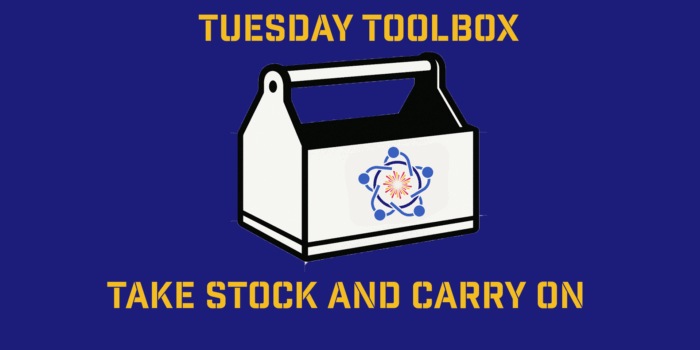My Wednesday Wish for You: Calm Confidence When you step into something new, an unfamiliar role, a daunting project, or…
These are basic but often overlooked. Do you have systems to avoid them consistently?
Launching a new business is risky — learn from other’s mistakes and set yourself up for success.
What’s the true failure rate of small businesses? Well, it depends on who you ask and whether it includes pandemic closures or not. Or, if there were economic or political drivers that worsened the closures. And frankly, it depends on who is counting and how they’re counting. It is arguable that the mistakes that make or break small businesses are similar across industries and geography. Whether it’s focusing attention on places that don’t produce income or build relationships, not setting boundaries or ignoring their online reputation, I’ve watched small businesses make these mistakes that make or break them.
Seven mistakes that make or break small businesses
1. Not defining an ideal client
I attended my first networking meeting more than a decade ago. There was a woman who represented a skincare line who said, “My ideal clients include anyone with skin…” While it’s great to be able to serve anyone who comes to you, it is also important to have a specific ideal client well-defined. That doesn’t mean you can’t work with others. It simply focuses your marketing efforts, including your short presentation at a networking meeting. A better commercial would be: My ideal client is a woman of a certain age who is concerned about fine lines and wrinkles. Failing to define an ideal client means your business can go in any direction and you become #2.
2. Busy but not productive
If you don’t know who your ideal client is, you set meetings with anyone in the hopes to find your clients. You become busy but not productive. I can still remember a couple of guys from years ago who ran around to networking meetings like it was their job. And in some sense, I guess it was their job, or at least what their business had become. They just didn’t know who they wanted as an ideal client. So they wasted a lot of time doing activities that were not income-producing. They looked busy but when I sat down with them, they were struggling financially. It was sad to hear but it was also a good lesson. When you focus your efforts, you get more accomplished and business grows.
3. Not setting boundaries
If you like working weekends, late into the night or during a time when you’d otherwise not want to be working, then do not set boundaries. If you want a life outside of business, set boundaries. I’ve found that if I don’t send emails or contact clients when outside of my normal work hours, they respect my time. Boundary setting is also important in contracts or agreements when describing the scope of the project. If a client wants more work, I have a stipulation in the agreement for the cost for work outside the scope of the original project. It saves a lot of time for everyone wondering what is within the scope and what is not. By clearly defining the hours and scope of the project, I can focus on the work and delivery. Without those in place, I could be working on a project indefinitely.
4. Ignoring reputation management
My husband and I make it our goal to leave positive reviews as much as possible and appropriate. All too often businesses only receive negative reviews, and they deserve positive reviews as well. Whatever review your business receives, you’ve got to be aware of your brand reputation online and respond to all reviews. There are reputation management companies whose sole focus is to respond to reviews, both good and bad. It can be a great investment for your business to hire one of them.
5. Working without a contract
Find out what your state requires to be considered a contract. An email of terms that each agrees to within the email that is dated is sufficient in some states while others may require an official, wet signature contract. Not only does the contract define the cost and payment terms, but it should also define the scope of the project. That means if the client wants more work, there is an added cost. Allow for a provision for work that is out of scope that will be billed at an hourly rate or whatever is customary in your industry. This will save you from miscommunication when you have a contract in which to refer. When the client asks why you can’t do additional work, tell them it’s out of scope per the terms of the agreement and what the cost is if they’d still like the work completed.
6. Not selecting a business structure
What I mean by this is that you haven’t incorporated or created an LLC for your business. Without one of these, you’re operating as a sole proprietor and personal assets are all at risk should the business be sued or sent to collections. Once a business structure is selected and set up, put an Operating Agreement (LLC) or Bylaws (Corporation) in place. You need to do this so that in the event you are incapacitated or worse, your business can continue without you. That means employees and vendors get paid, along with other receivables. Clients can continue receiving goods and services. Your family will also be protected.
7. Not collecting outstanding invoices
I can’t tell you how many freelancers post in social media groups that they are having trouble collecting from a client. And, they continue to do work for the client! I have a stipulation in my agreement that if invoices aren’t paid within a certain number of days, the work stops until the account is made current. You can also keep credit cards on file or set up a monthly subscription, so you’re paid automatically. In 11-plus years of freelancing, I’ve had one $75 invoice left unpaid. The rest are paid, and most are paid on time. Make it part of your contract and process for clients to pay you on time.
Without processes and boundaries, small businesses can easily work many hours with little to show for it on the bottom line. Learn from others the right ways to do business. Avoid these mistakes and be productive. Success is yours to be had!



